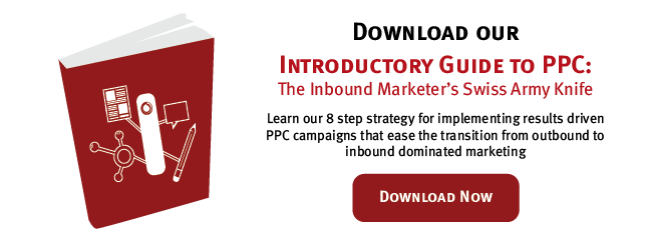 When you are faced with aggressive sales targets and dwindling lead generation performance, purchasing an email contact list can seem like a tempting quick fix to gain new contacts and disseminate your message. In reality, however, this practice could be the death of your credibility. These are the 8 dangers of using purchased email lists and why it may harm—rather than help—your business.
When you are faced with aggressive sales targets and dwindling lead generation performance, purchasing an email contact list can seem like a tempting quick fix to gain new contacts and disseminate your message. In reality, however, this practice could be the death of your credibility. These are the 8 dangers of using purchased email lists and why it may harm—rather than help—your business.
1. People don’t want to hear from you
What’s worse than an unsolicited cold call that interrupts your day? Two words: Unsolicited email (also known as spam). Blasting out thousands of emails can have a damaging effect on your brand. The vast majority of contacts on purchased email lists will have no idea who you are, what your company does or how you got their contact information. This is not a good way to make a first impression.
Email marketing companies will stretch the truth by telling you that these contacts have “opted in” to receiving emails, but this is also not the case. Some of the contacts might have opted in to the email list provider’s terms of service, and by doing so, unknowingly signed up to receive promotional emails from any customer of the email service provider. Other email addresses that are for sale through list providers have been collected by automated web crawlers that scrape tens of thousands of websites searching for contact information. Shady, right? Attempting to start a business relationship by spamming someone is an uphill battle, to say the least.
2. The data isn't as accurate as they say it is
Email list providers promise reliable contact information and high deliverability, but unfortunately, this is rarely the case. The reality is that purchased lists are chock full of bad data and out-of-date information. As soon as contact information is uploaded to an email list service, the data begins to become outdated—contacts get a new role within the organization, or leave the company, and companies close shop, or get acquired. This is know as email list churn. You can expect to lose more than ⅓ of your email list every year!
Any inaccuracies in your data will cause the recipient to immediately question your credibility. For example, if a contact record in your email list has the name of a holding company instead of the public company name, it will be blatantly obvious that you sent out a mass email. The same applies for any custom field that you use—there will be problems.
Don't waste your time and money chasing poor quality contacts, or even worse, contacts that don't exist. Instead, invest in marketing activities that establish your organization as an industry thought leader, build trust with your website visitors and that convert website visitors into opt-in email subscribers.
3. False personalization
With most email services, you have the ability to use custom fields like first name, last name, job title, or company name in your emails campaigns. In cases where you have an established relationship with the email recipients, it is appropriate to use some level of email personalization—but this practice can be dangerous when you are working with a purchased list. When you buy an email list, you have not earned the right to know these people's contact information. You have not established any sort of relationship, and you certainly have not established a sense of trust.
Tailored one-to-one marketing can be an amazingly productive thing—just be careful that you're not doing it prematurely. Receiving an unsolicited email is like starting a conversation with a stranger on the the bus. How would you react if complete stranger knew your name, what you do for a living, and your email address? Needless to say, you would be a bit wary of that person.
4. You are likely violating the terms of service
Any reputable ESP (email service provider) will clearly outline these two items in their terms of service:
- You won’t send spam!
- You won’t use purchased, rented, or third-party lists of email addresses.
Why would an ESP care about the ethics of your email activity? When you send mass emails through an email service provider, the email is routed through a common IP address associated with the ESP. If too many of the ESPs customers are sending poor quality emails, it can have a damaging affective on all of that service provider's customers' email deliverability. It only takes one bad apple to spoil the bunch.
5. Reduces email deliverability
For many businesses, email is the primary—and often only—channel of communication with their customers, members, and partners. What happens if your email doesn't end up in your intended recipient's inbox? They don’t receive their invoice, their password reset notification, or your latest, greatest product announcement.
Email primarily ends up in one of three places: successfully delivered to the inbox, routed to the junk or spam folder, or caught by an email service provider (ESP) gateway, preventing it from being delivered at all. If your email is being blocked by an ESP, you won't receive a bounce notification or error message.
Email deliverability can become a major problem, yet most organization don’t think about it until they have a crisis on their hands. Deliverability all comes down to sending reputation. ESPs monitor your email activity for a number of signals that contribute to your sending reputation. These signals include:
Sending relevant, properly formatted emails
Patterns in the volume of email you are sending
Number of times your emails are marked as junk or spam
Email bounce rates
If you purchase an email list and begin sending an unusually high volume of email, there is a good chance your activity might raise some red flags. If your sudden increase in email volume isn't enough to alert your ESP to your suspicious email behaviour, the high bounce rates and number of unsubscribes could be the nail in your coffin. If your email activity causes your ISP to flag your account, it can have seriously damaging effects on future email deliverability—in fact, in some cases, it could completely block your ability to communicate via email.
6. It’s so easy that anyone can do it
Guess what? You’re not the first person to purchase that email list. It’s more than likely that a few of your competitors and dozens of other organizations have blasted out promotional material to the exact same contacts, over and over. These contacts have completely tuned out unsolicited email. Valuable business relationships start by establishing trust, not by spamming people.
Think about it: if you had a great email list that your customers or prospects genuinely opted in for, would you share it with your competitors?
7. Morale killer
The person who decides it's a good idea to purchase an email list is likely not the person who will be executing the email campaigns. Purchased email and contact lists can be a complete morale killer for members of your sales and lead generation team. As members of your team begin to weed through the list of contacts, they will quickly become aware of the monotonous task you have dealt them. If you are lucky enough to get a response from a contact on your purchased list, you can expect to hear this:
- "Stop emailing me..."
- "How did you get my contact information?"
- "You have emailed me 10 times this week"
- "Not interested"
8. CRM bloat
One of the downstream effects of purchasing an email list is the data integrity nightmare it can cause in your CRM. When you come to the realization that all of the contacts from your purchased list are junk, it can be very difficult to separate genuine contacts that have asked to be contacted from all the useless data you imported from purchased lists. The bloat of bad data makes it nearly impossible to accurately compare the results of campaigns that are using contacts from various sources.
Purchasing an email list can also have an impact on the cost of your CRM and marketing software. Leading CRM and marketing software providers like Salesforce and HubSpot charge an additional fee for the ability to save large volumes of contact records. If your out-of-the-box subscription is equipped to handle 1000 contacts, and you purchase an email list with 10,000 contacts, you will more than likely incur costs simply to manage this additional data.
So, what’s the solution?
It's never too late to start building an opt-in email list. As Seth Godin points out, interactions rarely happen with people we don't trust. Do you immediately trust a door-to-door salesperson? A telemarketer? Or an email spammer?
Instead of pushing your message to thousands of unsuspecting inboxes, inbound marketing focuses on attracting people who are searching for information about your product or service. By consistently producing valuable content designed for your ideal customer visitors will be compelled to opt-in to hear from you on an on-going basis. This permission for communication marks the start of a potential business relationship.
Subscribers may pick certain types of email content they wish to receive, like requesting email alerts when new blog posts are published or when a new product feature is available. Opt-in email addresses are the result of earning the interest and trust of your contact because he or she thinks you have something valuable and helpful to say. While an email opt-in email list doesn't have the quick-fit feel of a purchased list, you can be confident that you are building a truly valuable asset.
Jesse Mawhinney is the Marketing Manager at Kula Partners, a Canadian inbound marketing and website development agency. Jesse's passions include social media strategy, inbound marketing methodology, entrepreneurship, and photography. You can find more from Jesse on LinkedIn, Twitter and the Kula Partners Blog.
Originally published Nov 29, 2013 10:00:00 AM, updated November 14 2023
Don't forget to share this post!
Related Articles

Expand Offer

